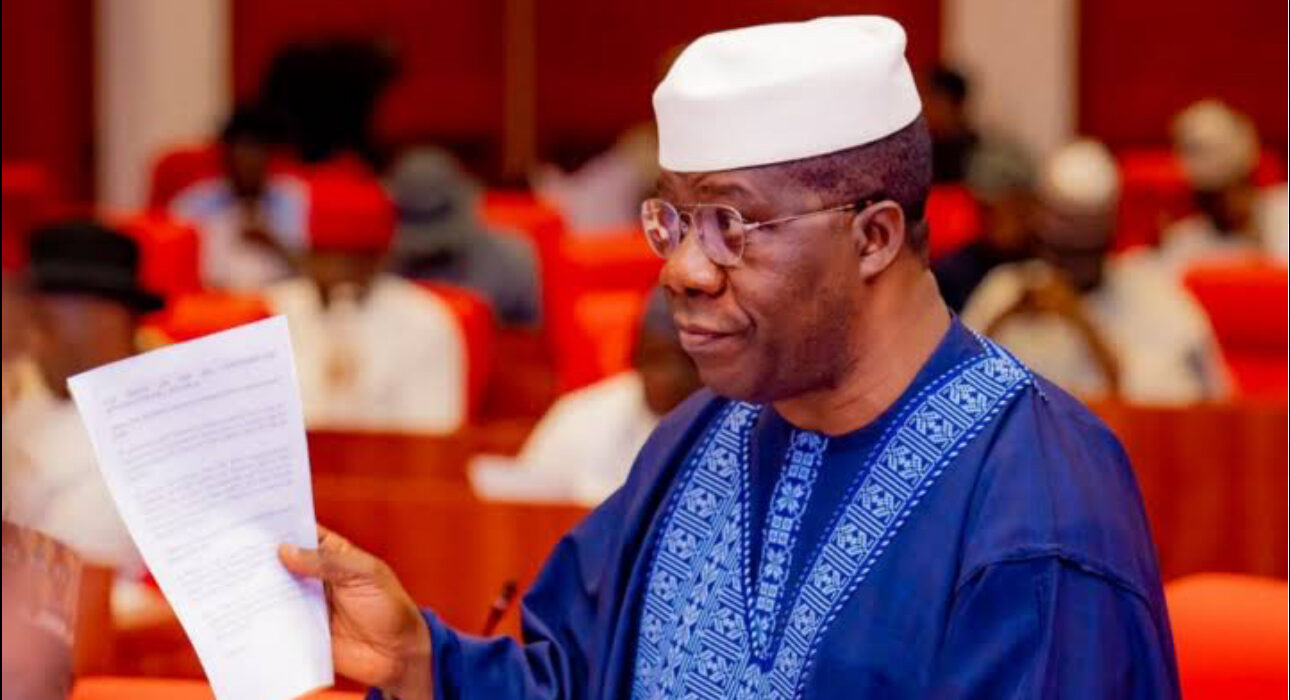National Assembly Develops Legal Framework for State Policing, Says Senator Bamidele

The National Assembly is working on a robust legal framework to establish state police as part of the move to tackle the country’s worsening security crisis.
This was disclosed by Senate Leader, Senator Opeyemi Bamidele, who emphasized the need for decentralized policing to provide localized solutions to Nigeria’s widespread insecurity.
During the 8th Convocation Lecture of the Federal University, Oye Ekiti, Senator Bamidele stated that the move was triggered by rising cases of banditry, terrorism, and kidnappings, which have overwhelmed the federal policing apparatus.
In Bamidele’s opinion, the enduring violence in some of the states — Benue, Ekiti, Kaduna, Katsina, Kebbi, Nasarawa, Ondo, Plateau, Sokoto, and Zamfara — were proofs that the current centralized security mechanism had failed.
“Developing such a legal framework has become imperative at this juncture in our history.
“This plan is in the superior public interest of maintaining the safety of lives and property, the stability of our democracy, and the progress of our fatherland,” he said.
In the face of fear that the governors of states may misuse their authority over the state police units, Bamidele reassured Nigerians that the bill would contain explicit provisions to ban arbitrary powers.
The legal framework should be able to satisfactorily deal with contentious issues that in the future will prevent the indiscriminate use of state police by governors.
“It should explicitly lay down internationally acceptable standards for delineating the investigative, operational, and prosecutorial functions of state police” Bamidele explained.
In his view, these checks and balances will be necessary to guarantee professionalism, accountability, and public confidence in the new policing system.
Senator Bamidele also called on local government councils, traditional rulers, and communities to be more actively involved in strengthening security.
He believed that community vigilante groups, local hunters, and youth groups could be formally integrated into security operations.
“All state security services require community, group, and individual contribution to address the challenge of banditry, kidnapping, and terrorism in the federation,” he added.
The planned shift to state policing would involve changing the Nigerian Constitution, which would have to be approved by a two-thirds majority of both chambers of the National Assembly and at least 24 Houses of Assembly in the states.
Parliamentarians are to initiate wide-ranging consultations and debates over the next few months to enable national consensus on the issue.
If passed, the bill would be a revolutionary shift in Nigeria’s law enforcement apparatus — possibly giving state governments a constitutional right to establish, fund, and maintain their own police forces for the first time in decades.
With Nigeria continuing to grapple with complex and geographically-defined security problems, the National Assembly proposal represents a sign of growing political will to reorder traditional approaches and adopt alternative mechanisms to reestablish security, order, and public trust across the country.








